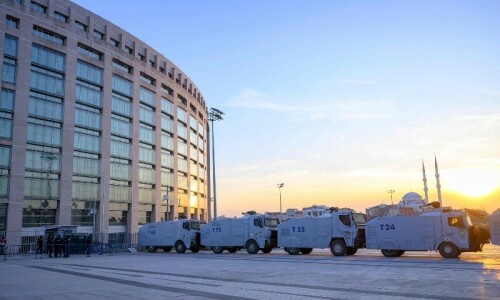Twenty-four political parties prepared to land in the election arena of 1970, held under Gen Yahya Khan’s martial law. Every party had its programme but two parties — the Awami League and the Pakistan People’s Party — were being eyed by the electorate as the winners. The presence of established ruling families posed a formidable force to be broken but the approach of the leadership of the said parties began setting directions of the election results at an early date.
On January 4, 1970, on his 42nd birthday Zulfikar Ali Bhutto launched his election campaign by addressing a public meeting at Nishtar Park, Karachi and in his forceful style he told the people that they were his ‘Round Table Conference’. In Punjab he started from Rawalpindi’s Liaquat Bagh. After Punjab he entered Khyber Pakhtunkhwa (then NWFP).
In East Pakistan Shaikh Mujibur Rahman, through his emotional and livid speeches, spoke about the injustices meted out to Bengalis since the inception of Pakistan and told them that the only solution lay in his six-point programme. With a few skirmishes among various party supporters, electioneering continued. Nomination papers for the National Assembly were filed on October 14 and for provincial assemblies the following day.
While Mujib put up a few candidates in West Pakistan, Bhutto completely ignored East Pakistan. In the western wing 1,070 candidates filed papers for 138 NA seats while in the eastern wing there were 870 candidates contesting 162 seats. In East Pakistan the Awami League fielded 162 candidates out of which two seats were conceded — one of Nurul Amin for whom Mujib had asked the workers to allow a few votes for the grand old man and the other of Raja Tridevrai as a minority member.
However, in West Pakistan the People’s Party could not achieve a similar sweep as did Mujib in the East; the PPP bagged 81 seats against a total of 138 seats (62 from Punjab’s 82 seats, 18 of 27 seats from Sindh). The results showed the Awami League as the largest party without a seat from West Pakistan. Similar was the case with the PPP which had no seat in East Pakistan. This created a situation whereby Yahya Khan sent congratulatory messages to both the party leaders, but addressed Mujib as the future prime minister.
The result was more disquieting for Yahya Khan who had in a pre-poll assessment been told that no party could take a clear lead and there would be a coalition government which could be easily handled by Yahya from the top. With all pre-poll predictions gone wrong the rightists could manage only 37 seats in a house of 300.
A tormenting situation arose for Yahya. While Mujib sat in Dhaka discussing the future government’s priorities, Yahya saw himself in a quandary. He had pledged that the constitution would be prepared within 120 days or the assemblies would stand abolished; and now time was racing away. On December 17, 1970 Mujib said that no one could stop the creation of Bangladesh. Bhutto readily replied that no constitution could be framed, nor government run at the centre, without his party’s cooperation.
To find a solution Yahya visited Karachi on December 28 where among others he met Bhutto. No independent source disclosed what transpired at the meeting but the following day a proclamation was issued that the first session of the Assembly would be held at Dhaka. After the results the two leaders had taken a rigid stand on their viewpoints. Mujib wanted Dhaka to take a pivotal role and everyone who wanted to meet Mujib should come to Dhaka.
Before Yahya could make another move, Mujib addressed a public meeting at the Ramna Racecourse grounds on January 3, in which all elected members were sworn to accept no less than Bangladesh. Yahya wanted to break the impasse and arrived at Dhaka on January 12, 1971; he held in-depth talks with Mujib. When he returned to Karachi he said that Mujib would be the next prime minister but then he (Yahya) would not be there.
Yahya had something to discuss with Bhutto and called on him at Larkana during which Yahya advised Bhutto to visit Dhaka and talk to Mujib. As Yahya and Bhutto discussed the situation various options, including the formation of a coalition government with smaller parties came up for discussion. But as we know that was not to be.













































